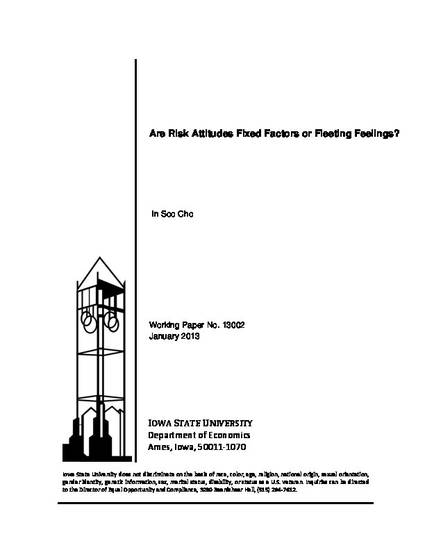
We investigate the stability of measured risk attitudes over time, using a 13-year longitudinal sample of individuals in the National Longitudinal Survey of Youth 1979. We find that an individual’s risk aversion changes systematically in response to personal economic circumstances. Risk aversion increases with lengthening spells of employment and time out of labor force, and decreases with lengthening unemployment spells. However, the most important result is that the majority of the variation in risk aversion is due to changes in measured individual tastes over time and not to variation across individuals. These findings that measured risk preferences are endogenous and subject to substantial measurement errors suggest caution in interpreting coefficients in models relying on contemporaneous, one-time measures of risk preferences.
Available at: http://works.bepress.com/peter-orazem/132/

This is a working paper of an article published as Cho, I., Orazem, P.F. & Rosenblat, T. Are Risk Attitudes Fixed Factors or Fleeting Feelings?. J Labor Res 39, 127–149 (2018). doi: 10.1007/s12122-018-9262-2. Posted with permission.